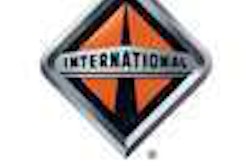Lakeville Motor Express
Roseville, Minn.
Spearheaded the creation of a seamless LTL network across North America by working with five other regional carriers to create the Reliance Network.
As 2007 came to an end, Pete Martin faced a grim scenario. To date, Lakeville Motor Express had enjoyed an 87-year record of consistent, profitable growth. But in March 2008, about 25 percent of the company’s revenue would walk out the door – literally overnight.
To stay competitive over the years, Martin says that he and other executives of LME – a Roseville, Minn.-based less-than-truckload carrier – had understood that the company had to be more than just a traditional truck line. During the past decade, the company has invested heavily in “any and all technology assistance to help shippers or consignees to manage information flow,” says Martin, the company’s president.
“We have consistently made capital investments in training personnel, expanding the density of our terminal networks, and ensuring that we have the best, most cost-effective people and equipment that we can put on the highway.”
To be a player in today’s competitive LTL market, Martin says that LME also has focused on maintaining a level of customer service that exceeds the demand in the marketplace. But even with all of its ongoing improvement efforts, 2008 was not shaping up as planned.
LME operates 385 tractors and 30 terminals to provide daily morning delivery throughout a 10-state Midwest region. In November 2007, LME announced it would end a 12-year strategic alliance called ExpressLink with two LTL carriers to provide expanded LTL coverage. Estes Express provided pickup-and-delivery services in the East, West and South, while TST Overland Express provided coverage in Canada.
The ExpressLink agreement came to an end with Estes Express’ decision to expand its terminal network to all 48 states. The company joined the ranks of national LTL carriers such as FedEx Freight, Old Dominion and YRC Worldwide. Estes now would be a direct competitor for LME’s regional operations.
The ExpressLink alliance officially ended on March 1, 2008. From November 2007 to March 2008, Martin worked quickly to create another strategic alliance that not only would replace lost business but also propel the company’s future growth.
“We began looking for other strong, profitable regional LTL carriers that would allow us to form a new network,” Martin says. To be considered, carriers had to have the same or similar values as LME: a commitment to superior service, dependable on-time delivery and a solid reputation within their own territories.
Martin first met with Averitt Express, a large regional LTL carrier with coverage in the South and Southeastern United States and Mexico. When meeting with executives from Averitt, Martin talked about growth and other mutual benefits the companies would enjoy through a strategic alliance with other strong regional LTL carriers.
“That’s the way the process began,” Martin says. The Reliance Network quickly grew to include four additional carriers: Canadian Freightways/Epic Express (Canada), DATS Trucking (West), Land Air Express (New England) and Pitt Ohio Express (Mid-Atlantic and Central States).
The technology edge
The new alliance was designed to provide seamless LTL, truckload and supply chain freight services across the North American continent. The original agreement for the Reliance Network is a five-year term, but Martin describes the agreement as “evergreen.”
“The intent is that we will each serve our current regional geography and rely on the service capabilities of our partner carriers to allow us to serve geographies outside our dedicated region,” he says.
As part of the agreement, the six carriers have predetermined the interchange points, or terminals, in the Reliance Network. Each day, the carriers load their overnight linehaul schedules into the information systems of their partner carriers. The linehaul schedules from one partner feed directly into the scheduling systems used at other partners’ hub terminals.
“Every freight bill moving at night is electronically closed to the outbound trailer dispatched to the partner facility,” Martin says. Each partner’s information systems not only show the receipt and arrival of linehaul freight to their partners’ terminals, but also movement to the final destination.
There are other significant differences between the setup of the Reliance Network and traditional interline services between carriers. Members of the Reliance Network not only have opened their computer systems to each other but also to their customers. Shippers will get a single PRO number from their regional LTL carrier and will deal only with a single carrier for billing and other details. Any shipment that moves through the Reliance Network can be tracked via the same PRO number.
“We’ve done that in an effort to truly create a seamless technology environment,” Martin says.
Growth strategy
With a national LTL network, LME – and any other partner member – has the capability to provide consistent, reliable service beyond its regional borders, Martin says.
“Instead of being a 10-state regional carrier, we market all of North America,” he says. Ultimately, Martin says LME will be able to provide global logistics solutions. For example, the international group of Averitt Express is developing a direct route from Shanghai, China, to Memphis, Tenn., via a distribution chain over the ocean into the West Coast, over the road to Memphis, Tenn., en route to distribution throughout the United States.
Each of the Reliance Network partners predominantly calls on customers in their own region. The partners also have some common national accounts. And as the network expands its reach into international trade, each carrier will have an opportunity to do more direct business with international shippers, Martin says.
By forming the Reliance Network, each of the regional carriers can compete on the same level as a national carrier. The carriers can give customers the same benefits they’ve always offered for dealing with a flexible regional carrier who can customize some offerings – inside delivery, appointment scheduled times, etc.
Since the Reliance Network officially began in March, LME not only has replaced the business it stood to lose from its ExpressLink alliance, it also has increased in terms of “bill count” by about 750 shipments per day. Today, the Reliance Network is handling about 40,000 shipments per month between all partners.
“We have the flexibility in many cases to work with the large and mid-size customers that large carriers do not have,” Martin says. “The flexibility the network offers in meeting today’s supply chain needs – from the point of origin to the destination and through whatever status changes – is the single factor that customers have found to be the biggest benefit.”
Innovators profiles carriers and fleets that have found innovative ways to overcome trucking’s challenges.
If you know a carrier that has displayed innovation, contact Avery Vise at [email protected] or (800) 633-5953.











